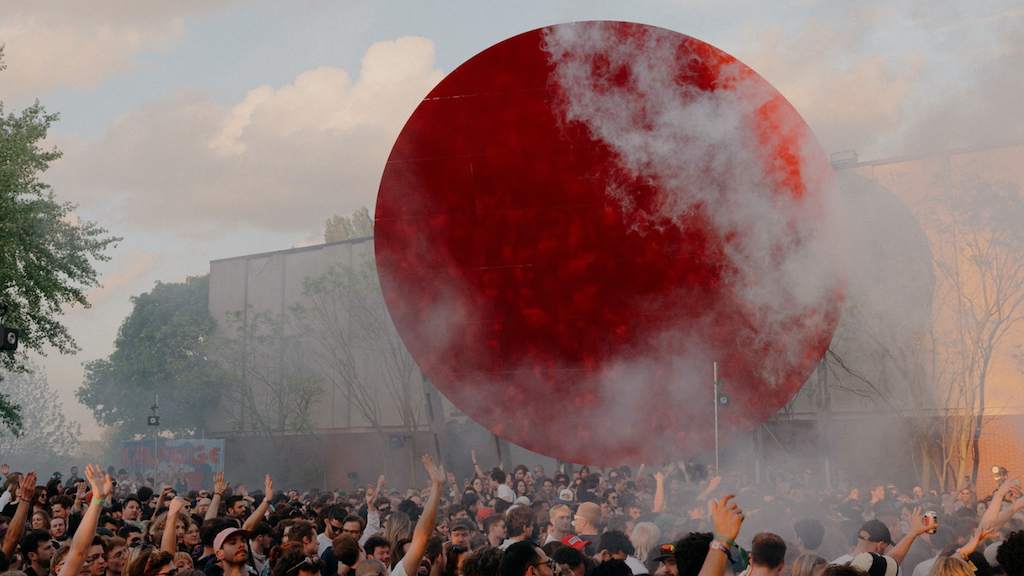Published
Wed, Nov 8, 2023, 13:30
- Our industry-focused newsletter enters the news section with a look at the trend of safer spaces initiatives in nightlife.

Welcome to the RA Pro Newsletter: a bite-sized look at the trends and themes impacting businesses in the electronic music industry. Sign up to the full newsletter to get early access to each release and read all archived editions.
When Zoë Beery travelled to Belgian festival Horst Arts & Music to attend a safer spaces initiative in 2019, she observed how some people were a little hostile to the idea. These folks perceived raves "as a sort of zero-sum space for freedom—that if we focus on making them safer for marginalised people, then it will ruin someone else's good time, an attitude that also exists in the US," the New York-based organiser described. As more dance music markets embrace the socially aware and responsible style of partying advocated by safer spaces, some stubborn hurdles are emerging in the process.
A safer space essentially refers to a venue, party or gathering that's sensitive to gender fluidity, drug use, mental health, class, race, migration status and other cultural, plus structural, dynamics. It implements a culture of respect, maintaining a zero-tolerance policy towards harassment, sexism, transphobia, staring, discrimination and breaches of personal space, while promoting activities like harm-reduction workshops and bystander training. The concept works in tandem with worldwide social movements for inclusivity, community and accountability that were reinvigorated by the Covid-19 pandemic. But safer spaces sometimes get perceived as a byproduct of woke urban culture, drawing criticism from those who dislike rules at a party.
Beery, who co-facilitated Horst's safer spaces programme in 2022, now believes Europe's upcoming generation of ravers is receptive to, and understands the need for, such a venture. Last year, she feared "some guests would be hostile to the fact that two thirds of the onsite leadership was American, and would see our presence as an imposition of US social justice culture." But starting next year, Horst's program will be led entirely by Belgians.
"That was always the plan—for the Americans to offer our expertise in setting up the team, and then step back," she continued. "This is how promoters who want to draw on Americans' safer spaces knowledge can prevent cultural incompetence from influencing their programmes."
Differences in social values is another challenge to widening safer spaces' global footprint. In countries with strict laws on sexuality and freedom of expression, promoters and activists must exercise extreme caution so as not to attract police attention. Queer-friendly parties in Bangladesh, for example, operate on an exclusive, invite-only model for security and safety reasons.
Major clubbing capitals also face their own challenges. As safer spaces become a more accepted element of nightlife, some promoters and clubs engage in signalling—appearing committed to the practice without actually devoting any resources to it—to stay relevant. False promises are perhaps the most dangerous obstacle to universal rollout of safer spaces, threatening to undermine and dilute its potency.
Perspectives on the ground
Industrial Copera, a 31-year-old nightlife institution in the southern Spanish city of Granada, introduced an anti-harassment protocol over a year ago following an alleged homophobic killing of a 24-year-old male nurse during Pride weekend in 2021. The programme was designed and taught to staff by Jara Juana Bermejo Vega, an activist and Spain's most senior transgender woman in quantum computing, Yeyes Lucas of Industrial Copera told RA.
"In this country, it seems that more and more clubs are launching initiatives to create safe spaces," she explained. "It is seen on social networks and there is a lot of talk about this very necessary topic." Barcelona is a pioneer in this field, she continued, referring to the city's No Callem programme, which offers training to nightlife workers on sexual harassment and aggression.
Lucas is also cofounder of a local collective called Tuttispace, which creates safer spaces for women, LGTBIQA+ and BIPOC people. The crew has held several activities at Industrial Copera, including a workshop on anti-racism taught by Cameroonian activist Brenda Bih Chi.
In case you missed it: important industry news
• TikTok strikes global deal with DistroKid
• German music bodies request Culture Pass extension
• Audiomovers is helping sound cross borders
• Hipgnosis investors vote against UK-listed song royalties group continuing
• Leeds venue Sheaf St closes with immediate effect
• Billboard releases royalty calculator for Spotify and Apple Music
Photo: Illias Teirlinck

